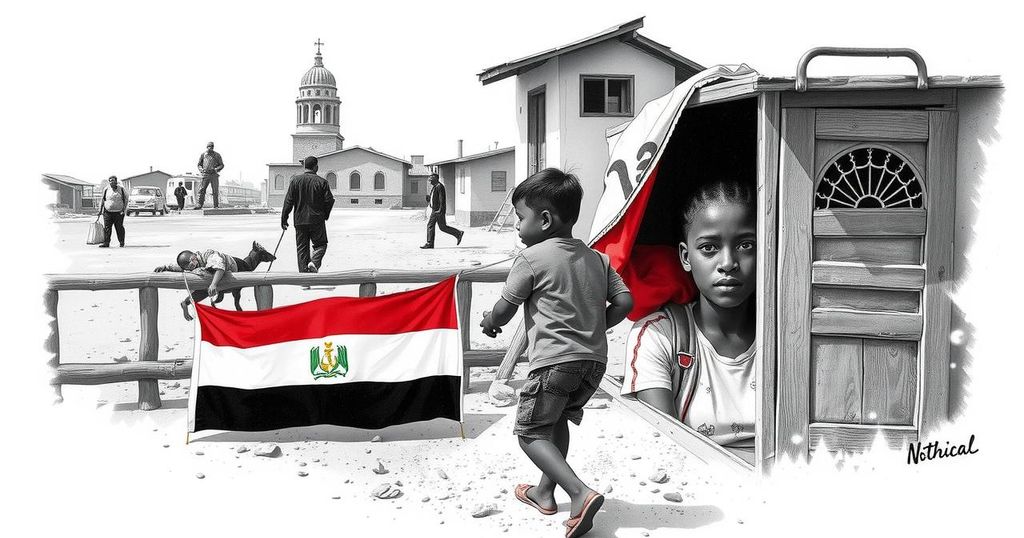Egypt is re-evaluating its stance on refugees amid an economic crisis, shifting from a welcoming approach to viewing newcomers as potential burdens on resources. Prominent figures previously supportive of refugees are now expressing concerns over their impact on local society, while the government seeks international financial aid to address these challenges.
Egypt is currently grappling with an economic crisis, which has exacerbated its approach to refugees from war-torn countries such as Syria, Sudan, and Palestine. In the past, figures like Azza Mostafa, a pro-government television anchor, praised Syrian refugees for their contributions to Egyptian society. However, as economic conditions have worsened, the narrative has shifted towards viewing these newcomers as a burden, leading to increased criticisms regarding their impact on local resources and social issues. Government leaders are also echoing these sentiments, emphasizing the strain on the country’s economy and seeking assistance from Western nations to manage the situation. Historically, Egypt has been welcoming, allowing a multitude of foreign nationals to reside and work freely, but the current climate reflects a stark change in policy driven by pressing economic concerns.
Egypt has been a refuge for individuals from various conflict zones, including Syrians fleeing civil war since 2011 and more recently Palestinians facing crises. The influx of refugees has contributed to a demographic shift, which, while historically welcomed, is now being scrutinized amid rising economic challenges. Leaders in Egypt are attempting to navigate this sensitive issue as they address the complexities of resource allocation and social cohesion between locals and refugees, amidst demands for international support.
In summary, Egypt’s perspective on refugees has shifted from welcome to wary, as economic stresses mount. The once-celebrated contributions of refugees are now being overshadowed by concerns over resource strain and social conflicts. This shift reflects the broader challenges faced by the Egyptian government in managing an increasingly complex socio-economic landscape, while also seeking aid from the international community to alleviate the burgeoning pressure.
Original Source: www.nytimes.com






